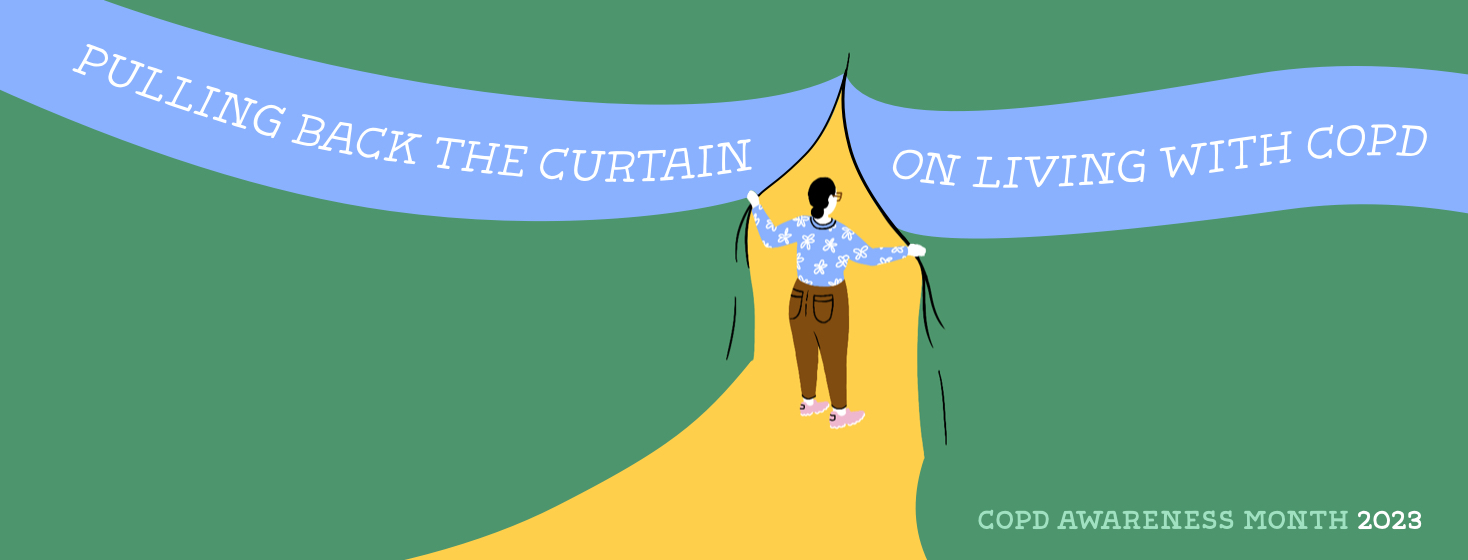COPD Awareness Month: Pulling Back the Curtain
Despite the obvious physical symptoms, COPD's emotional and psychological effects on patients can often be invisible. During this COPD awareness month, we'll pull back the curtain on COPD and uncover the unseen challenges and emotions that come with this chronic respiratory condition.
The physical struggles
COPD includes various conditions, such as chronic bronchitis and emphysema. These conditions cause a gradual decrease in airflow and can reduce lung function. As a result, people with COPD frequently encounter the following:
Shortness of breath
Shortness of breath is a prominent characteristic of COPD, often triggered by everyday activities such as walking or climbing stairs. Experiencing difficulty breathing can be both distressing and exhausting.
Flare-ups
Exacerbations of COPD, also known as flare-ups, have the potential to be severe and may result in hospitalizations. The sudden worsening of symptoms can occur unexpectedly, causing disruptions in the lives of both COPD patients and their loved ones.
Reduced quality of life
Physical activity restrictions and a decreased capacity for enjoyment of life are two effects of COPD. Social isolation and feelings of sadness can result from this.
Featured Forum
View all responsesThe emotional struggles
Living with COPD not only presents physical challenges but also significantly impacts the emotional well-being of those affected. These emotional struggles often go unnoticed or unseen, such as:
Depression and anxiety
Anxiety and depression might result from the constant worry of shortness of breath and the unpredictability of flare-ups. People with COPD may grow more concerned about their disease and how it may affect their future.
Stigma and shame
A social stigma often accompanies COPD because of its association with smoking. People may experience feelings of shame, regardless of whether their COPD is caused by smoking or not. This situation can lead to feelings of isolation and a reluctance to seek support.
Grief
COPD frequently results in a decrease in one's ability to live independently. Some may have to depend on oxygen therapy or mobility aids, which might result in giving up activities they used to enjoy. Experiencing this can trigger sadness and longing for the life they previously enjoyed.
Featured Forum
View all responsesOther unseen issues
Showering
When bending or reaching, particularly when washing and rinsing oneself, the effort necessary might make one feel more tired and short of breath. Because COPD can affect mobility, entering and exiting the shower might be challenging.
Running errands
The fatigue brought on by COPD may be severe. Running errands may be difficult since even basic things like grocery shopping, going to the bank, or visiting many businesses can exhaust you.
Relationships
A person with COPD may find it difficult to engage in social activities, which may cause feelings of loneliness and isolation. Some avoid social situations, which can negatively impact relationships.
Also, COPD could cause role changes in relationships. Someone with COPD may need more support, and their partner or family members may be required to take on new tasks, which may be difficult to navigate.
Featured Forum
View all responsesSupport and coping
Living with COPD creates many difficulties that may not always be clear. However, it is important to remember that hope and support are always available for people facing this condition. Seeking support from professionals, finding a network of support, and advocating for oneself are important for those with COPD.

Join the conversation